Where are the Hard Science Fiction Writers who are Christians?
Hi, I’m Travis Perry–yeah, I know there’s a short bio of me with this article, but I think I’d like to introduce myself in a different way. Most of you have most likely seen at least an article or two I’ve written here for Speculative Faith. What you may not realize is how much I like so-called “hard” science fiction. Which has lead me to ask, “Where are the hard science fiction writers who are Christians?” Please allow me to explain the question:
Hard science fiction, in case you didn’t know, is the name for sci fi that treats the laws of physics as if they really matter. Hard science fiction tries to explore things that really could happen in the future, as opposed to space opera, which is really about telling an exciting story with space as a backdrop.
Star Wars is of course classic space opera, widely considered science fiction by most people, but you could just as well call it space fantasy. Not because it would be impossible to make a sword based on highly heated plasma (to pick just one example), but if you managed to to make such a machine and held it anywhere near your face (as Luke Skywalker often did), you’d burn your face off. (Though Darth Vader’s face mask would presumably provide some heat protection, so he’d be okay, I guess 🙂 .) Star Wars light sabers don’t exist because they could work, but because they parallel real swords. There’s something cool about imagining sword fighting returning in a new, sort of space-magic way.
Just because I prefer hard science fiction doesn’t mean I don’t ever like space opera, by the way. I’ve enjoyed Star Wars. Please note that Star Trek is also basically space opera, however, Star Trek at times plays with ideas that relate to real physics. We could maybe call Star Trek “hard science fiction-flavored space opera.” (Ditto for Dr. Who, though Who has somewhat less of the flavor of scientific plausibility than Star Trek.)
Superhero stories are another kind of fantasy. Getting bit by a radioactive (or bio-engineered) spider would kill you, not make you into a superhero. The Incredible Hulk might grow larger in rage, but his own body cannot simply get bigger to become the Hulk, not from a hard science fiction point of view, because the law of conservation of matter would apply so as he got bigger, so his body would become less dense. The Hulk, even if very strong, would have the body consistency of the Stay Puft marshmallow man (from Ghostbusters).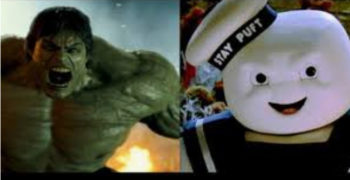 (For Hulk to get bigger and weigh more, he’d have to steal mass from another dimension or something. But where does that extra mass go when he turns smaller again?)
(For Hulk to get bigger and weigh more, he’d have to steal mass from another dimension or something. But where does that extra mass go when he turns smaller again?)
Plus wearing Iron Man’s metal suit would not spare him from g-force damage from hard impacts. Or saying a yellow sun gives Superman the power to fly doesn’t even have a hypothetical explanation, but if it did, wouldn’t he have less power at night? Etc. Etc.
I personally prefer fantasy to be forthrightly set in another world or dimension with magical creatures over pseudo science, though I have a little bit of tolerance for pseudo science. One thing I especially like about epic fantasy is the way such stories can contrast the struggle between good and evil in a way that some people may complain is not realistic, since so few villains or heroes in the real world are so wholly good or bad. But by showing the baddest possible bad, an epic fantasy story can comment on what evil actually is, what the nature of true wickedness is–and of course the nature of goodness as well, illuminating moral truth in a way a more realistic story often fails to do. (E.g. no one can turn the power of evil into good, proclaims The Lord of the Rings–the best good can do is put away evil, first by resisting it, then by appealing to the type of destructive event seen at Mount Doom, liberation coming through the hero’s self-sacrifice.)
My favorite space opera and superhero stories also feature strong contrasts between good and evil. In fact, a common criticism of mine concerning superhero stories is they far too often fail to show either convincing villains or sufficiently evil villains.
So having said all that, how is it that I can and do like stories that aren’t hard sci-fi, yet still say I really like it? What’s the reason I like hard science fiction at all?
I used to be one of those dinosaur book readers as a small child and I followed it up by reading about outer space and rockets and history and many things. While fantasy has its appeal, the real universe is cool–things that have really happened in human history and the history of the universe are fascinating. God is painting on a canvas of actual events and through the laws of nature, if we have the eyes to see his working through the real world.
So I read science first and then checked out the “science fiction” section of my middle school library because it had the word “science” in it. Seriously. I immediately ran into stories (from the 50s) that talked about exploration of the moon and other planets. For me at that time, what was interesting about all this was the idea it could really happen–that maybe someday I would get to see another world, that maybe I would walk on Mars myself. These story worlds, these projections onto other planets were inherently more interesting than whatever was going on with the characters–though of course the characters could be interesting, too.
I found myself liking stories driven by ideas that at least seemed very plausible. For example, what if there was a story in which scientists used modern DNA techniques to bring dinosaurs back, so they live today? Of course, I’m laughing as I write that–this idea has already been done in Jurassic Park and its many sequels, a story much more fascinating because of the ideas behind it than because of any of its characters. Though I suppose the characters were at least somewhat engaging, too. Especially Malcolm.
In fact, virtually every Michael Crichton story qualifies as hard science fiction, even the novel he wrote set in the dark ages (Eaters of the Dead) made into the movie The Thirteenth Warrior, in which Crichton in effect sent the closest thing to a scientific observer of the era (the Arab character), into the world of Vikings. And then established a credible scientific explanation for the type of monster known as “Grendel” in Beowulf.
Ideas that are not fully “hard” have influenced science fiction beyond what you may realize. The novel series Dune has a very medieval feel to it–lots of personal combat, though with knives instead of swords. But why do they fight with knives?–because personal shield technology is so common in the story world that guns are largely useless. The idea of personal shields may not work as far as the technology involved would be concerned, but the story gives a real reason why knife fighting is a thing in a way that makes internal sense to the story. There are many examples of this sort of thing in the history of science fiction.
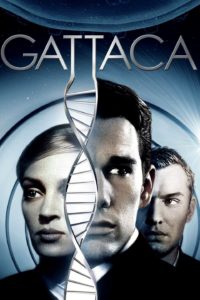
Image copyright: Colombia Pictures
In films, hard science fiction shows itself in realistic pondering of the effects of genetics testing and engineering on human society in Gattaca. This kind of story that realistically looks at future technology and its effects on society with implications that could easily been religious and which would seem to be a natural zone for Christian authors to engage. But I don’t see much sign that we are.
Hard science fiction is also in many other (but not all) dystopian tales, military science fiction (Starship Troopers is probably the most famous example in film), and in cyberpunk stories or LitRPG tales like Ready Player One (since they are based on actual computer technology or tech-coming-soon). Space opera and superhero tales gather greater box office sales, but stories with more of a “science” quotient in their science fiction represent a major segment of speculative fiction sales in print and in films worldwide.
So hard science fiction or stories that trend that direction are a major, worldwide thing. Yet among those Christian friends writing speculative fiction with Christian themes (or at least not in complete opposition to a Christian world view), how many are writing hard science fiction or even leaning that direction? I know of two, Kerry Nietz, who often writes cyberpunk and in general incorporates hard science fiction ideas in his stories and Steve Rzasa writing things that at times are probably space opera, at times hard sci fi. And Lelia Rose Foreman, who almost always sticks to scientific plausibility, including showing realistic shifts in language and culture. (I suppose I might constitute a fourth such writer, especially in anthologies I’ve published and contributed stories to like Medieval Mars and Victorian Venus or Andrea J. Graham’s WebSurfer antho). And…surely I must be missing somebody, right?
Yeah, I know there has to be others. And I actually do know some short story writers also veering in the direction of hard science fiction. But not many. At the primary conference focused on speculative fiction writers “of faith,” Realm Makers, science fiction of any kind is very much outnumbered by fantasy. And among the science fiction that’s there, most is space opera– the selection of hard science fiction is pretty small, comparatively speaking.
And that brings me back to the question I used to title this post. Where are the Christians writing hard science fiction? Why does my intuitive sense of proportions sense that the percentage of hard sci fi types is much lower among Christians than in the speculative fiction world overall? Am I even correct about that? And if I am correct, what do you think is the cause of this phenomenon?
And who did I forget to mention among Christian authors writing hard science fiction? Let me know in the comments below.
































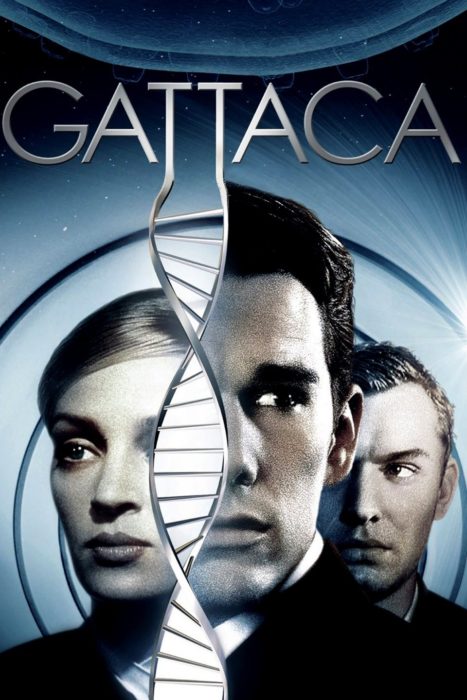

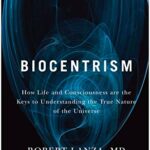

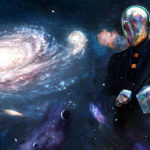




Well, some of the more jerkish atheists would imply that it is because Christians are ‘too ignorant’ of science to write about it, or that they’re afraid of it or whatever. Though if that’s the case, those particular atheists are not helpful in this matter. They act like religion goes against science so much that one cannot plausibly believe in both, thereby implying that Christians have to choose between following God and studying science.
I think Jill Williamson’s story Replication might have some of the elements you talked about, in terms of discussing societal implications of science, though I haven’t read it yet.
I mostly write fantasy, but quite a few of my stories are science fiction since they take place in futuristic worlds. A lot of it probably won’t be hard scifi, but I do like delving into the societal consequences of things, and I guess giving the stories some degree of practicality. I at least sort of acknowledge that the chars wouldn’t be able to fly from planet to planet in just a few hours, so interplanetary travel isn’t near as common. In a lot of ways, if someone flies to a planet, they’re there to stay, at least for a few decades. There was also a point where the military in my superhero story has their scientists genetically engineer some dogs that are sentient, like humans, since sentient dogs would be far more useful. But that’s way easier for them than it would be for us, since there have previously been other (naturally occuring) sentient animals in that world’s history. But then I also explore some of the societal consequences of sentient war dogs.
I went through a Jurassic Park phase in my early teens and read the novels. WAY different than the movies, for sure, but they were fun still. One reason why I personally don’t write hard science fiction is because, well, I’m not a scientist. I’m not going to write a book and advertise it as hard science fiction in most cases because I know there will be tons of errors. I almost became a scientist of sorts (initially, I was double majoring and one half of that was Environmental Science) but when weighing out what I wanted to do every day of my life, I chose the goal of writing and owning my own business. I love researching things as a hobby, but actually being forced to research every day is a whole other matter. It’s probably a good thing I made that choice regardless. I like Environmental Science, but would that have been exactly right for me? Not sure. I like a lot of other areas too, such as Paleontology, and the idea of studying animal biomechanics is awesome too.
Not sure how many writers are in the same boat, but maybe they are, in the sense of liking science, but not enough to be the expert they feel like they need to be to write hard science fiction. Another thing is that even if someone is a scientist, that might make them really good at writing the biology of aliens or something, but they might not know enough science pertaining to space travel to actually write about it. So, that might influence the kind of books they write.
Thanks for your comment. The question I have is if Christians retreat from science because people you called “more jerkish atheists” have rather camped out on science, claiming it for themselves…kind of driving us away.
Or is it really true Christians know less about science? Maybe it is, generally speaking.
Though I’m definitely a science enthusiast myself. VERY much so.
I really do understand feeling the pressure of not wanting to worry if every detail is correct, though. I set out to write a story set in a Biblical setting and found myself totally obsessed over every little Hebrew word describing where the story was located…(I’m not that uptight about science, it seems 🙂 )
Honestly, I think it’s a little of both. The jerkish atheists don’t help and may have even accidentally instigated the issue in the first place by trying to use evolution to replace God. Even though it is possible for both evolution and God to exist at the same time…
And yeah. In some ways I’m uptight about science and in some ways I’m not. I want things to make sense to some degree or other, and I don’t want to advertise a story as hard science fiction only to have tons of obvious errors in it. At the same time, I leave some things purposefully vague so that I can avoid getting details wrong while also making the story feel somewhat realistic. It’s nice when a story feels like it could actually happen, but it’s not so nice to struggle to get something as perfect as possible and STILL have people say it isn’t realistic enough.
Shivering World, my favorite by Kathy Tyers, is hard science fiction.
I recommend that book highly. You might like Weeping May Tarry by Raymond F. Jones and Lester del Rey.
Let’s see, there’s The Gevaudan Project by A.K. Preston,
Logic’s End by Keith Robinson,
Brain Plague by David Walton,
Circular Horizon by Bokerah Brumley,
The Chaplain’s War and The Bricks of Eta Cassiopeiae by Brad Torgersen,
The Deadman Switch by Timothy Zahn,
Lingua Franca by Carole McDonnell,
Starfire by Stuart Vaugn Stockton,
Somewhither by John C. Wright, as well as the Eschaton Sequence series,
Respite by Autumn Rachel Dryden,
Thunder by Bonnie Calhoun, and the
Paradise Protocol by Anna Zogg.
Wow! That’s quite a lot more than I knew about. Thank you for sharing!
I don’t know that Timothy Zahn is a Christian, though it’d be awesome if he actually was.
He was my neighbor a few years ago and attended the church over in the next town. Obviously going to church doesn’t make one a Christian, but the times I interacted with him and his wife and seeing how active his family was in that church leads me to believe he’s a Christian.
That’s cool 🙂 I enjoyed his book Allegiance, and his Dragonback series, though I haven’t had a chance to finish the series yet.
Read Deadman switch for a delightful foray into Christian thought about a horrific situation.
I, too, am a fan of hard science fiction, part of why I enjoyed your Mars anthology so much.
Hey there Travis. I’m currently writing a novel somewhere in between space opera and hard sci-fi. There’s a lot of near-future science in it that I started with, and then there’s some other things I take more license with. I wouldn’t consider myself an expert on any of these principles, and so I echo what Autumn said about not wanting to be cornered by too much scrutiny.
I agree with your point that this is an area rich with possibility for believers to explore. Science is a tool that can either be used for good or evil. And even with the best of intentions, everything gets corrupted to some extent by our fallen nature. I’m exploring that with an element of gene engineering in my novel, as we discussed elsewhere. What if you could eradicate not only pain, but anxiety or trauma, through DNA editing? It’s a very real possibility today, so I’m imagining a world a few decades from now where gene mods like this are common. What would be the unintended consequences?
But then I’m also throwing aliens and FTL spaceships into the mix. And more than that, I’m focusing on themes like coming of age, grief, and family. I suspect many Christian writers are drawn to the “softer” sciences like these because of our focus on life’s spiritual dimension.
Well, talking about aliens is merely speculative. It can be hard or space opera, depending on how you do it. FTL can be hard science fiction if you simply allow some pretty-well established method to be front and center (like the Alcubierre Drive–which would actually work, but would require a kind of matter, “exotic matter,” with “negative energy density,” which has never been observed, to make it work.)
I think your idea on genetic engineering is pretty interesting though. And very much a “hard” science fiction angle.
And yes, most of all, I wish Christians did see writing about science is an opportunity, even if it can be challenging.
Anyone read the Mammoth series by Stephen Baxter? It’s been forever since I’ve read them, so it’s hard to give an opinion on their quality. But I think my favorite one was Icebones, which is kind of a futuristic story where mammoths were brought to Mars to do work and stuff like that, but then it went wrong and the humans had to leave the planet and the mammoths were left to their own devices. Not Christian fiction, though.
I haven’t read it, but it sounds interesting.
Wiki tells me that only the last of the trilogy takes place on Mars. Stephen Baxter seems to be a fairly prolific writer, but my library website does not show the Mammoth trilogy in there.
I would totes take more mammoths in my fiction.
Yeah, each book takes place in a different time period and centers on a different character, which is another thing I enjoyed. But, yes, mammoths and all those other ancient creatures are awesome. There’s been several prehistoric stories I’ve liked, but then there’s been some that I wanted to like but then kind of dropped because the writing style and such didn’t appeal to me (Ratha’s Creature being one of them. Though maybe I’ll give it another chance some day.)
I’d like to read more stuff set in the Ice Age, but I don’t want to read boring caveman pr0nz like Clan of the Cave Bear. There was some middle-grade fiction set in prehistoric Finland that I can’t remember the title of, but it had very little worldbuilding about early agriculture and weaving and the nerdcore stuff I’d be interested in.
Heck, I’d take alternate universe semi-frozen planet where people with Industrial-up-to-Space-Age technology cope with their environment, adopting ancient techniques as needed. No idea about the plot, tho. I like the slice-of-life genre, but I’d probably be terrible about writing one.
Kay Fedewa’s Blackblood Alliance is about prehistoric animals and is pretty good. She has both the old version of her comic up(though it was never finished) and the new, rebooted version, which is even better and has a different plot:
https://www.deviantart.com/kayfedewa/art/The-Blackblood-Alliance-Page-1-628572670
That’s the first page of the rebooted version, and the old version is elsewhere on her dA profile. The link to the next page should be in the description of the comic.
There’s this one too, about prehistoric horses, though I haven’t read much of it:
https://www.deviantart.com/bughs-22/art/Horse-Age-Intro-Page-1-690694508
I’ve thought about doing a futuristic story where the world is frozen over and people have to survive and perhaps have to use Ice Age like animals, or genetically engineer existing animals to adapt to the cold. It wouldn’t be slice of life, but maybe something that takes place during the transitional period before people start traveling space in my story worlds. Or maybe it will be what will happen to those that don’t start traveling space.
My current WIP borrows from prehistoric time periods, though it also combines aspects of later time periods as well. Many creatures in the war torn side of that world are at least partly based off of/related to creatures like entelodonts and megaloceros. And some made up descendants of therapsids/gorgonopsids are important and live alongside the humans and angel descendants dwelling in the area.
What hivemind are you connected to in order to find all this good stuff? Any time I surf thru DeviantArt without a direct link, the best put-together stuff I find is gay furry pronz.
Lol. Well, there’s groups dedicated to animal comics, and searching through the favorites list of artists I like is also a good resource. It helps to have specific topics/fandoms to search through, though patience is needed to sift through the results. One time I was looking for reference pictures of borzois, and stumbled across a couple great artists that had lots of great drawings of that breed, so sometimes the discoveries are pretty accidental. There’s also a list of recommendations beside every piece, along with a list of groups the piece is listed in(if any) and it can be helpful to look through those. I also browse with the mature content filter on, so that probably cuts down on the amount of junk in the search results(though the filter doesn’t block nearly everything.)
I don’t remember exactly how I discovered the Blackblood Alliance, since it’s been years since then. Maybe I was just browsing through wolf art and kept noticing BBA pages in the thumbnails and heard people talking about it enough that I decided to finally read it.
What I’ve read by Stephen Baxter is very anti-religious. I haven’t read the Mammoth Series, which sounds interesting.
My 2013 book QUICKSILVER is hard science fiction (several reviewers have said so!). I did a lot of research into electronics, engineering, communications technology and radio telescopes (including visiting a real one in the absolute back of beyond, an hour and a half’s drive down a gravel road into the middle of Algonquin National Park). I don’t know that I’ll ever write anything quite like it again, but it was a great experience and I’m glad I did it.
Thank you for letting me know–I’ll have to get a copy!
It just went out of print, so it may be hard to get — let me know if you can’t find it and I’ll send you one of my copies.
I don’t know if Michael Flynn is a Christian, but he deeply considered two important theological questions, in a manner sympathetic to Christian thought, in his Eifelheim, which was about aliens landing on earth a few centuries ago. See http://sunandshield.blogspot.com/2008/03/eifelheim-by-michael-flynn.html
I wonder if the Christians interested in science aren’t as interested in writing fiction as they are in hard science?
I know, a bunch of people have commented with several new authors, so it’s obvious they exist, but I also know there’s quite a lot of Christian scientists from some recent Apologetics conferences I’ve been to.
Good article. I’d like to add Randy Ingermanson to the list of authorising hard science fiction. Although he doesn’t seem to be writing any more (he’s a physicist so he might be busy) I loved his Oxygen and follow-up Fifth Man books. The City of God trilowas excellent too but more Bible/time travel stuff. If you haven’t read him I highly suggest doing so.
Randy is still writing. I can’t believe I left off his Oxygen and Double Vision. Anyway, he is working on a series of novels about Jesus Christ. He also puts out a craft newsletter that is really good. AND, almost any writer can benefit from reading his Snowflake Method.